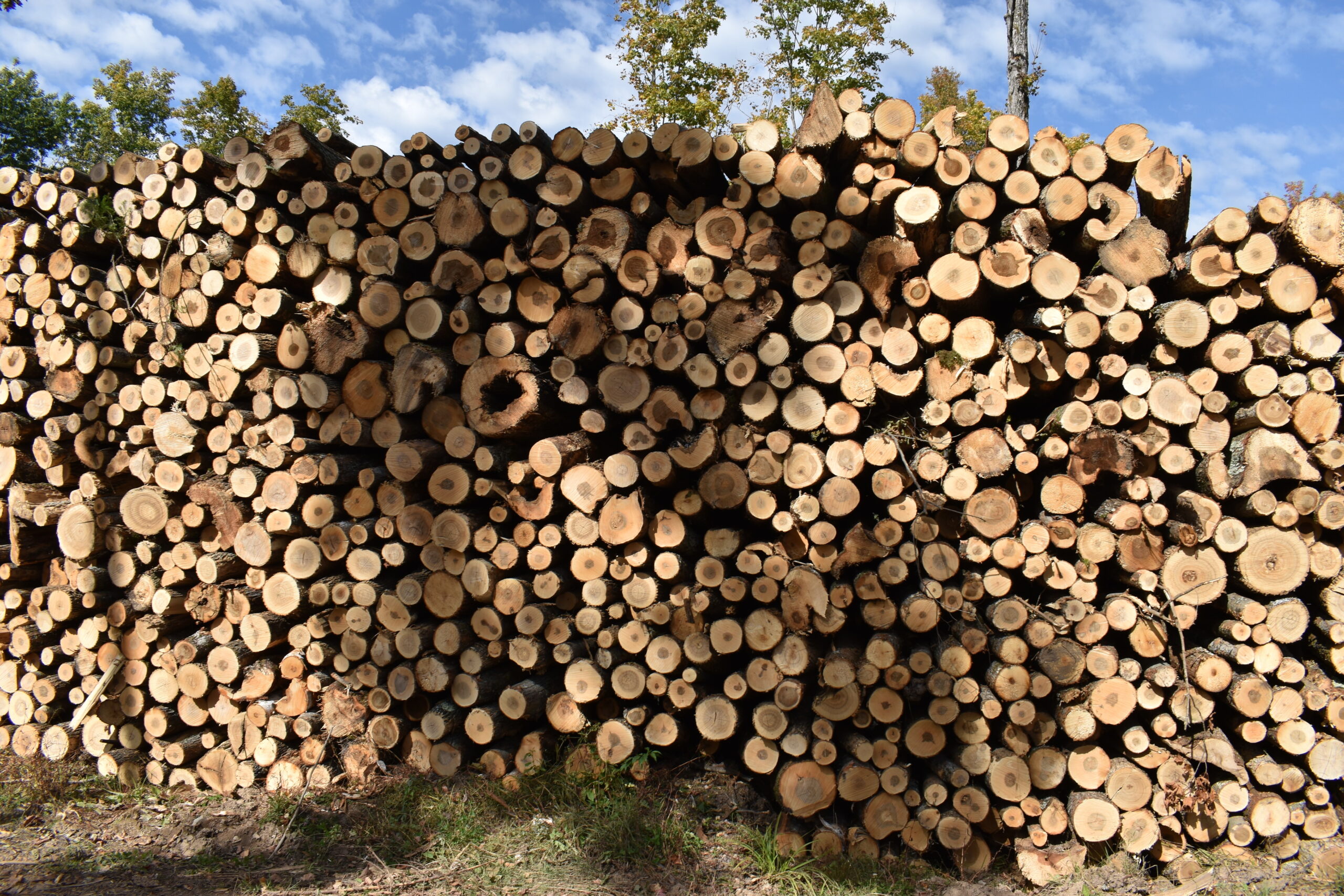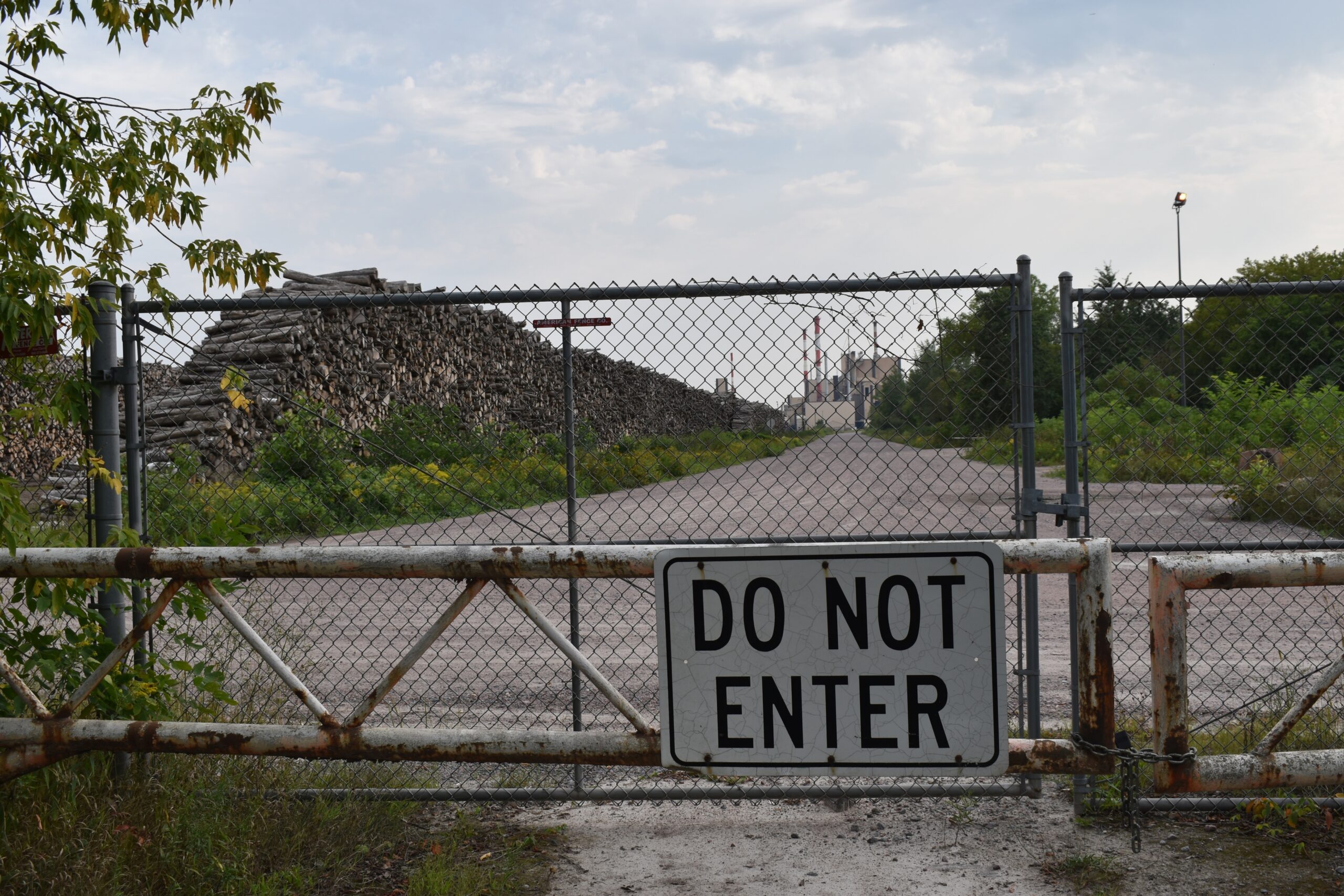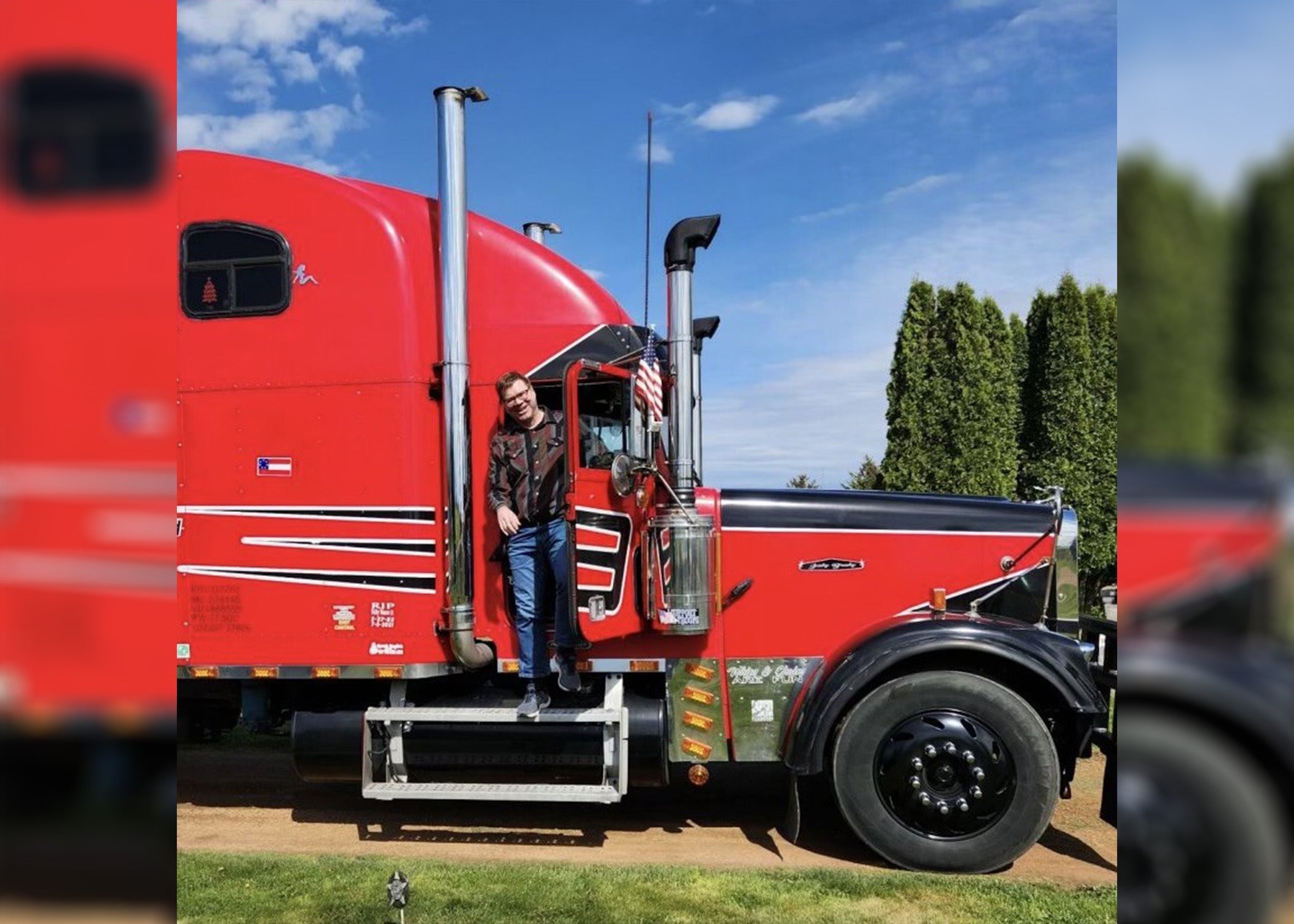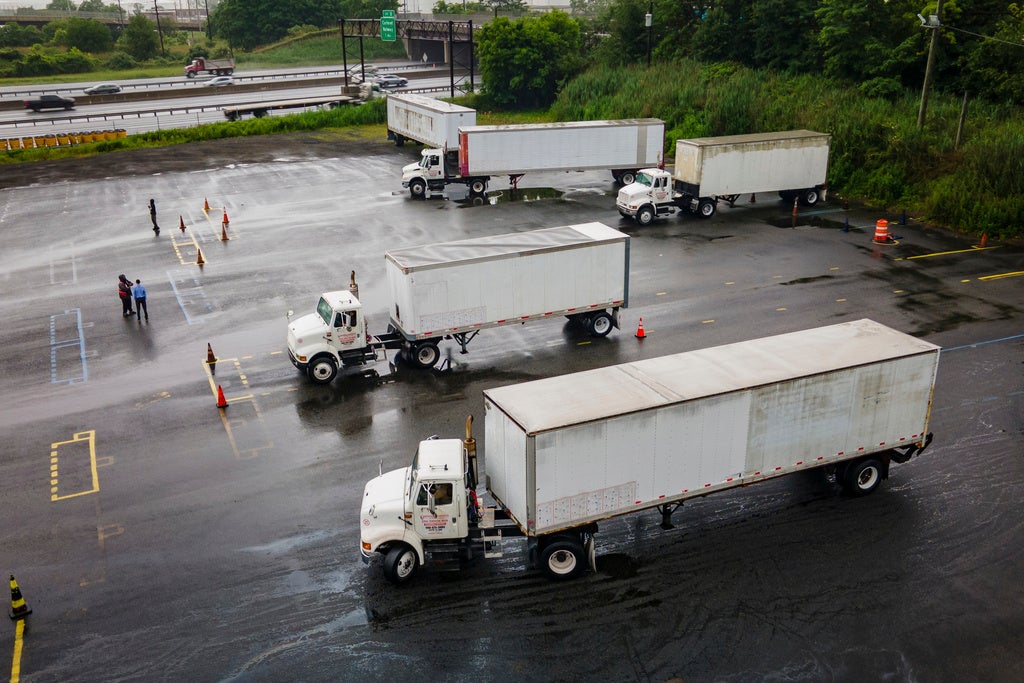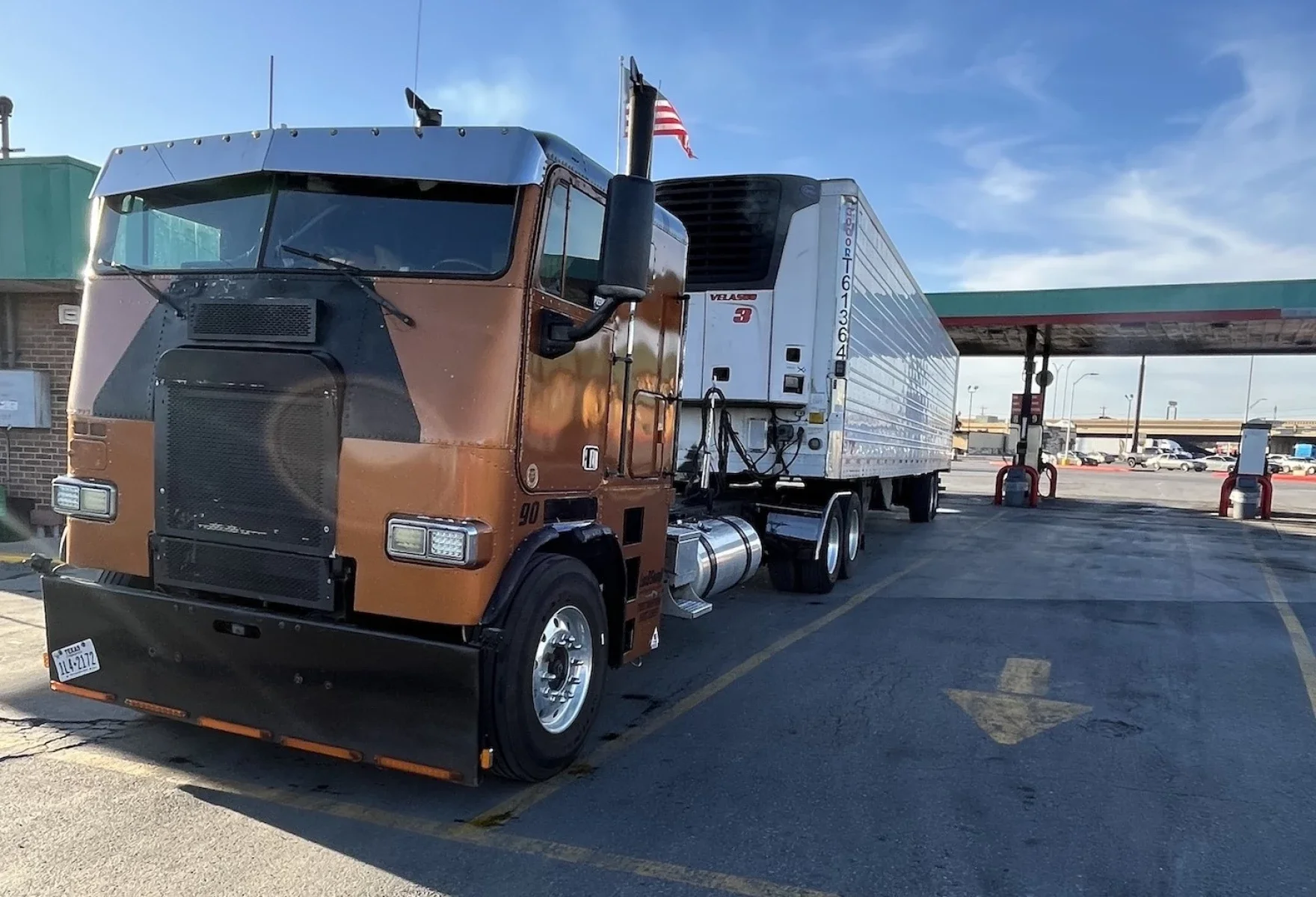Republican lawmakers are considering a bill that would let the forest products industry truck heavier loads on more routes near the Michigan-Wisconsin border, a move supporters say would save time and money, but one that transportation officials warn would further damage the state’s roads.
Under current law, a vehicle largely can’t exceed certain size, weight and load requirements unless authorized by the Wisconsin Department of Transportation.
Normally, Wisconsin’s DOT limits trucks to carrying 80,000 pounds, but state transportation officials can grant so-called “Michigan border permits” for overweight vehicles to transport loads within 11 miles of the Wisconsin-Michigan border and other designated routes. Under those permits, trucks are allowed to abide by Michigan’s maximum weight limit, which is 164,000 pounds, or more than twice the normal limit in Wisconsin.
News with a little more humanity
WPR’s “Wisconsin Today” newsletter keeps you connected to the state you love without feeling overwhelmed. No paywall. No agenda. No corporate filter.
Wisconsin has already designated a number of timber routes that allow trucks to haul more weight, and the Republican-authored bill would add 10 more. Lawmakers say the proposal comes at the request of timber groups.
Henry Schienebeck, executive director of the Great Lakes Timber Professionals Association, said they’re trying to improve transportation of forest products. He said the change would allow them to use trucks that can carry heavier loads and spread out the weight, so they don’t damage the roads.
“From our perspective, it’s a win-win-win because we’re keeping the cost of transportation in check,” Schienebeck said. “There’s basically less trucks on the road because we’re hauling more payload, and we’re doing the same or less damage to the road actually as what we would do with a normal 80,000-pound truck.”
Schienebeck said the industry has struggled with a shortage of drivers and a shift to hauling wood over longer distances.
The state Senate’s transportation committee held a public hearing on the bill last week. The committee’s chair, Sen. Cory Tomczyk, R-Mosinee, said the routes are sufficient to allow trucks with heavier loads “to operate without risking excessive damage to structures or excessive safety risks.”
Timber industry officials said they worked with engineers at the Wisconsin Department of Transportation to ensure the roads were suitable to handle trucks carrying heavier loads.
The state DOT said it’s committed to providing safe and reliable routes for the movement of goods and services in Wisconsin, though the agency also cautioned that increased truck traffic would come with a tradeoff.
“(W)hile these proposed routes may not be an immediate concern, it is anticipated that overall increases in truck volumes will have impacts and accelerate the deterioration of existing infrastructure,” the agency said in an email. “Similar to other highways throughout the state, we will monitor the structural and pavement conditions and schedule any necessary improvements as funding allows.”
The agency said it’s issued 364 permits this year for transporting loads near the border and other specified routes, and the timber industry is the largest user of those permits. Even so, state transportation officials say the industry is constantly harvesting timber from different locations “further minimizing any effects that may be seen from these weights traveling down these repeated corridors.”
Larry Krueger, owner of Krueger Lumber Company, said his family-owned business logs timber for their sawmill in the Manitowoc County village of Valders. Krueger said they’ve been forced to move more forest products by truck as rail service has declined since Canadian National Railway Co. bought Wisconsin Central Transportation Co. in 2001. The “short-line” railroad shipped freight over short distances.
“If you can’t haul by rail, then unfortunately, you have to start hauling more and more product by truck,” Krueger told Wisconsin Public Radio. “That puts more trucks on the road, burns more diesel, increases the cost, makes Wisconsin industry less competitive.”
Officials with Canadian National didn’t immediately return requests for comment on Friday in response to groups’ claims of lacking service. The Wisconsin Railroad Association has registered in opposition to the bill.
As of 2020, the forest products industry in Wisconsin employed more than 58,000 workers with an economic output of $24.2 billion, according to the Wisconsin Department of Natural Resources. Timber industry officials said the number of workers is down from roughly 64,000 jobs in 2018.
Pete Johnson, a board member with Lake States Lumber Association, said during last week’s hearing that the legislation would help reduce trips on state highways. Johnson, who is also with Granite Valley Forest Products in New London, said they’re currently bringing in lumber from Michigan on a B-train truck that has two trailers. Once in Wisconsin, he said they can only take one trailer at a time to their facility roughly 70 miles away.
Patrick Vander Sanden, executive director of the Wisconsin County Highway Association, said there would be a requirement for trucks to have more axles and more tires that would spread out weight more on the roads. He said that may not have a detrimental effect on roadways. Even so, he questioned whether the bill may open the door for easing weight restrictions.
“We certainly want to support industry whether it be forestry or other industry,” Vander Sanden told WPR. “But there’s got to be a point where it’s certainly detrimental to what we’re trying to do to keep the road system in a safe and up-to-date manner.”
During his campaign in 2018, Gov. Tony Evers ran on a platform to “fix the damn roads.” Evers said the state has improved more than 5,800 miles of roads and highways since 2019.
The 2023-25 budget provides $2.2 billion in funding for state highway programs, a nearly 8 percent increase from the previous budget. The Wisconsin Department of Transportation said the increased funding will allow the agency to maintain state highways in “fair and above condition.”
Wisconsin Public Radio, © Copyright 2025, Board of Regents of the University of Wisconsin System and Wisconsin Educational Communications Board.

